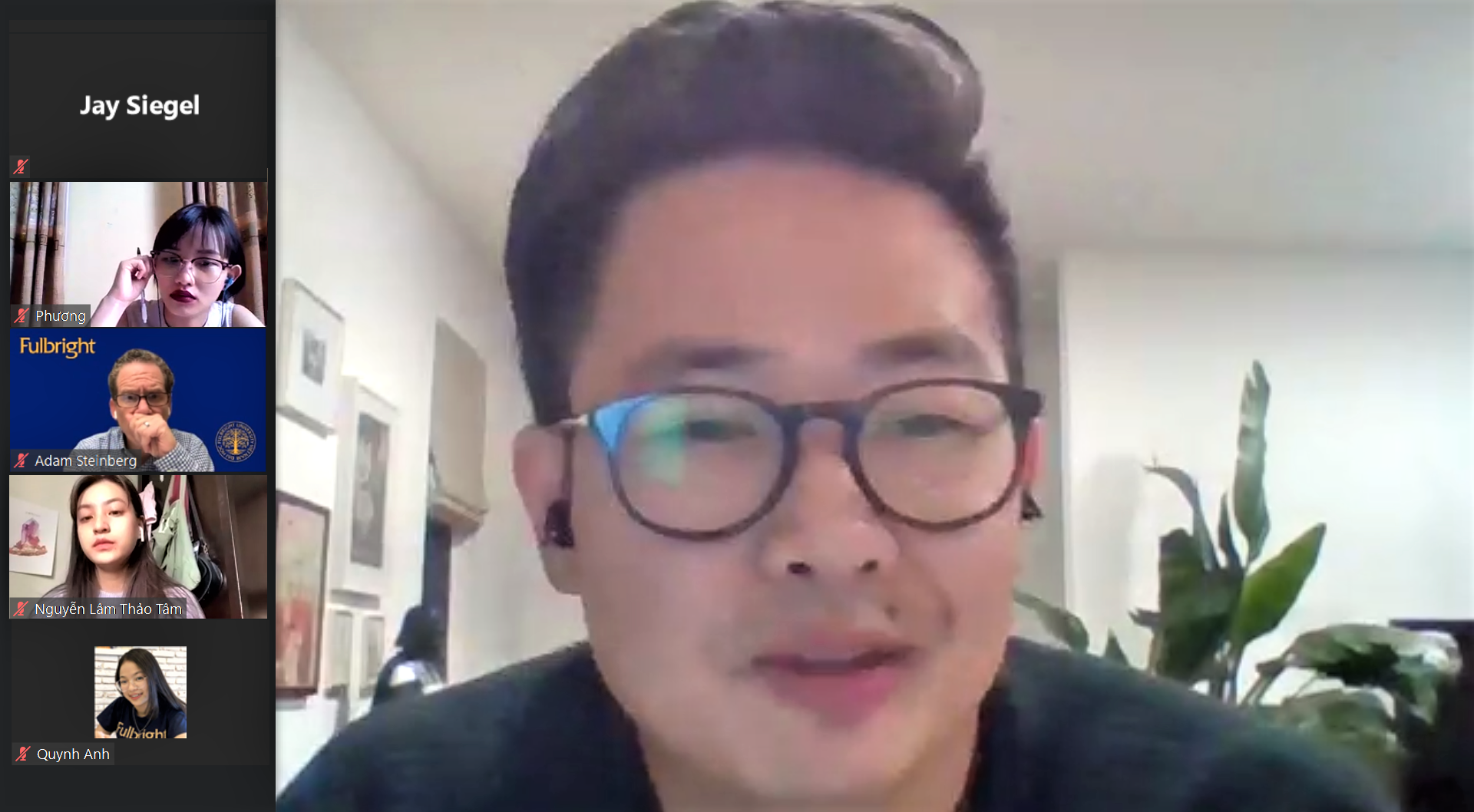
A veteran of studio finance, business development, and acquisitions, Mr. Dan Truong is the Head of U.S. movie acquisitions at Amazon, the world’s biggest e-commerce corporation. Prior to his current role, Dan worked at two media distribution companies – The Orchard and Focus Features, before becoming the Head of Independent Film Acquisitions at Prime Video Direct.
With the pandemic having a significant impact on the media industry, online streaming services are facing tremendous opportunities. In a virtual conversation with Fulbright University Vietnam, Dan shared insights about film distribution, as well as practical advice for students interested in this career path.
The changing landscape

Having surpassed 200 million Prime subscribers in 19 countries, Amazon is becoming a heavyweight contender in the film and television space. In a quarterly earnings report released in April 2021, it is stated that more than 175 million users streamed shows and movies on Amazon Prime Video last year. As its subscriber base keeps growing, the streaming service has to constantly produce and source new content. This is where acquisitions come in.
Back in the day, the process used to be mainly qualitative. Acquirers would watch a movie and based on their artistic instincts or aesthetic taste, they would decide if that movie was worth buying and distributing. However, Dan revealed, film acquisition has evolved to be much more data-driven. Like any other consumer product, movies are analyzed through spreadsheets and models.

Film acquisition has evolved to be much more data-driven in this digital age.
“Years ago, I thought about working in film as being a film nerd, a cinephile, in some way. But a lot of the industry today is people with MBAs, businesspeople who are able to dig into the data and make a lot of quantitative decisions. Our day-to-day is really looking at spreadsheets, looking at numbers and interpret demand,” he explained.
Technology is prominent in this transformation. The help of machine learning algorithms allows representatives like Dan to predict the commercial success of a movie even before it is released, with a myriad of demand signals entering the equation like the movie’s genre, budget, or the cast’s popularity.
This raised the question about creativity and profitability: would moviemakers and distributors forego original content in favor of numbers? Although Dan admitted he could see AI-optimized productions happening someday, he believes passion and personal stories will always have their unique place on the market. Before his transition to Amazon, Dan started his career distributing independent, arthouse movies where he navigated with his personal intuition and love for film. Such a background is still immensely helpful in his current job, even with the assistance of AI models. Liberal education hence plays an indispensable role in a field like film acquisition, as it equips learners with a core mindset that is essential in this trade.
“It has always been the kind of independent and intimate films that I have gravitated towards. The data is not going to tell me those are very popular films, but I have a belief that’s where you will find new and interesting things. Even though I’m looking at a lot of data and I’m buying mostly big, broad Hollywood films these days, I try to cultivate that love and passion of cinema still to this day,” Dan said.
“The student who has a creative skill set can easily learn to run a spreadsheet. But if you do the flip, where it’s the business student trying to learn how to be creative, that’s probably less successful.”
Finding the X factor
In 2018, the global film industry was estimated by IBISWorld to worth $136 billion. Despite the devastating blow from COVID-19, thousands of movies are still produced each year. In Dan’s words, “more things are going to be made than can ever be distributed, and then more things are probably distributed than we can have a watch”.

The inundation of production, plus influences from data, make it increasingly hard for new films to break through. From the audience, Professor Jay Siegel, Fulbright’s Provost was concerned if such environment would prohibit “mutation” – disruptive voices – and hinder the necessary evolution in film. To this, Dan seemed quite optimistic:
“Because we’re trying to serve tens of millions of customers, it is going to be very down the middle. But besides the core customer base, we have more time now to get more granular about how we define an audience.” According to Dan, streaming services like Amazon are actively trying to deliver niche content to smaller segments of their audience with diversified interests. This optimization will give more room for emerging, refreshing new ideas.
Recently, the marvelous success of Asian movies like Parasite and Minari have brought hopes for foreign moviemakers. Like Netflix, another major player in the streaming game, Amazon is beginning to invest more in international productions. From the rising demand to license and develop regional content catering to local appetites, opportunities are opening up for filmmakers outside of Hollywood. Instead of trying – and struggling – to penetrate the US market, Dan believed Vietnamese movies should first tell Vietnamese stories and stay true to their identity. Not until they have passed the pressure test on their own homeground can they join the global playground.
“In my job, I’m trying to optimize for profit, and the best way to optimize for that is to take no risk – just do the things that we know everybody’s going to click on and watch. But the more willing distributors are to take on financial risk, the more independent voices are going to have a chance. For these smaller films, it’s not about making a billion dollars. It’s about making a healthy independent film environment which can give some pathways for a sustainable career for independent filmmakers. Add value, then hopefully, if luck is with you, one of those might be the next ‘Parasite’,” said Dan
Anh Thư







